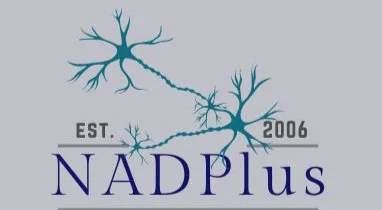Enhancing Circadian Rhythms and Deep Sleep with NAD+ Therapy
Enhancing Circadian Rhythms and Deep Sleep with NAD+ Therapy is something most of us can relate to. In our fast-paced society, where stress levels are high and sleep often takes a back seat to our busy schedules, the importance of quality sleep cannot be overstated. Sleep is not merely a period of rest; it's a critical process that allows our bodies to repair, rejuvenate, and regulate essential functions, including our circadian rhythms. However, many individuals struggle with sleep disturbances, leading to a cascade of negative effects on their health and well-being.
NAD+ & Sleep
How to enhance circadian rhythms and deep sleep with NAD+ Therapy.
Enter Nicotinamide adenine dinucleotide (NAD+), a molecule found in every cell of the body, known for its pivotal role in various biological processes, including energy metabolism and DNA repair. Recent research has shed light on NAD+'s potential in regulating circadian rhythms and improving deep sleep, offering new hope for those battling sleep disorders and related issues.
Circadian rhythms are the body's internal clock, governing our sleep-wake cycle, hormone release, body temperature, and other physiological processes. Disruptions to these rhythms can lead to a range of health problems, from insomnia to mood disorders and even metabolic dysfunction. NAD+ therapy works by supporting the function of proteins called sirtuins, which play a crucial role in regulating circadian rhythms.
One of the primary mechanisms through which NAD+ influences circadian rhythms is by activating sirtuin proteins, particularly SIRT1 and SIRT6. These proteins help maintain the stability of the body's internal clock by modulating the activity of clock genes, such as CLOCK and BMAL1. By enhancing sirtuin activity, NAD+ therapy can help synchronize circadian rhythms, promoting better sleep quality and overall health.
Moreover, NAD+ plays a vital role in mitochondrial function, the powerhouse of our cells responsible for energy production. Mitochondria are not only involved in energy metabolism but also play a crucial role in regulating cellular processes linked to circadian rhythms. By supporting mitochondrial health, NAD+ therapy can indirectly influence circadian rhythms, ensuring optimal functioning of the body's internal clock.
In addition to regulating circadian rhythms, NAD+ therapy has been shown to improve deep sleep, the most restorative stage of the sleep cycle. Deep sleep is essential for memory consolidation, immune function, and tissue repair. However, many factors, such as stress, aging, and lifestyle habits, can disrupt deep sleep, leading to fatigue and cognitive impairment.
Research suggests that NAD+ levels decline with age, compromising mitochondrial function and contributing to sleep disturbances. By replenishing NAD+ levels through supplementation or other therapeutic approaches, individuals may experience improvements in deep sleep duration and quality. This is supported by studies demonstrating the role of NAD+ in enhancing mitochondrial function and promoting neuronal health, both of which are essential for sleep regulation.
Furthermore, NAD+ therapy has been shown to alleviate factors that can disrupt sleep, such as inflammation and oxidative stress. Chronic inflammation and oxidative damage have been implicated in various sleep disorders, including insomnia and sleep apnea. By reducing inflammation and oxidative stress, NAD+ therapy may help create a more conducive environment for restful sleep.
While NAD+ therapy shows promise in regulating circadian rhythms and improving deep sleep, it's essential to recognize that individual responses may vary. Factors such as age, underlying health conditions, and lifestyle habits can influence the effectiveness of NAD+ supplementation. Therefore, it's advisable to consult with a healthcare professional before embarking on any NAD+ therapy regimen.

